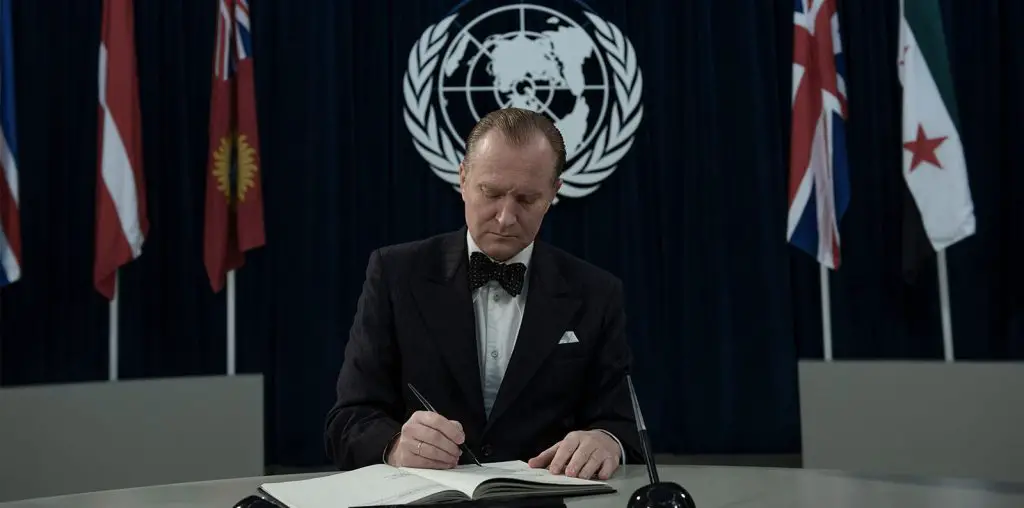
“Blackball” has:
– The unexceptional bloke (Paul Kaye) from the “wrong side of the tracks”, at least in the eyes of the Royal Torquay Bowls Club, and especially the head of it, Ray Speight (James Cromwell).
– Cliff Starkey’s (Kaye) outstanding talent in the English game of bowls, which shocks even the stick-up-the-a*s players. This leads to a battle between dignity and traditionalism, and just plain wackiness and crowd pleasing stunts.
– Both polar opposites, Cliff and Ray, facing each other in one Bowls tournament, in which the “underdog” beats the seasoned veteran.
– The obligatory love interest (Alice Evans), who just “happens” to be the daughter of Cliff’s enemy. She’s useless.
– The slimy sports agent (Vince Vaughn) who sees a future in Cliff.
– Cliff at the top of the bowls world, without any of his friends or beloved grandfather, because his ego and newfound celebrity power got the best of him.
– Plenty more than just that.
“Blackball”, as evidenced by the first quarter of the film, is not a National Lampoon production at all. Utilizing the friendship between Cliff and the portly Trevor (Johnny Vegas), it is a good-natured bunch of scenes that are far removed from such fare as “Dorm Daze”. As it so happens, “Blackball” was bought up by the National Lampoon name after its completion, but even with that kind of promise, it falls into a deep, dank well of everything we’ve seen not only in sports movies, but also in pictures where some character achieves grand celebrity status and kicks down everyone who helped get him there. Cliff gets that celebrity status by his talent at lawn bowling, or at least that’s what I assume it is because it’s not entirely the sport that matters anyway. Eventually, it’s bastardized, turned into a massive media-driven sport that thankfully doesn’t have Jean Reno bragging about an enormous cable deal.
What matters here are such characters like Trevor, who’s always eating, but manages to pop off a few good lines and rounds of support for Cliff, who wants to play his game more than helping his granddad with interior decorating. Mind you, this isn’t the stuff of interior decorating that’s embraced by the Queer Eye crews. Just simple paint jobs and decorating misaligned wallpaper, to show that these are humble people, to remind us later on where Cliff came from when the scenes come along where he’s an insufferable a*****e. In these types of movies, a man’s gotta rise to the top to see what he’s lost before realizing that being where he was isn’t a bad thing. James Cromwell is bravely game for what’s going on here, but his only scenes of dignity are indeed when he’s a tightwad traditionalist. His grace, poise, and calm speaking tones show why he’s one of those actors you can go to for those roles that require a man of tall stature and even taller elegance. It’s towards those scenes near the end at the stadium for the “big game” where he seems to tire of what’s going on. Not only his character, but him as well.
Paul Kaye looks like Jamie Kennedy mixed with a little bit of Ali G, but he walks and talks later on like every single egotistical, boorish character encountered in these kinds of sports and celebrity films. Even more worse off is Vince Vaughn who basically comes in out of nowhere and serves no one. It’s impossible to dream up what he may have found in this role, but the character is so plain that he should have just worn a sign: “Generic Loud-Mouthed Sports Agent”.
Once Cliff leaves his home for the higher life, “Blackball” loses any semblance of charm that might have been gained. It just winds up as another filmmaking exercise where it’s thought that the story is there, but in reality, it got drunk at the corner bar and puked all over the characters.
